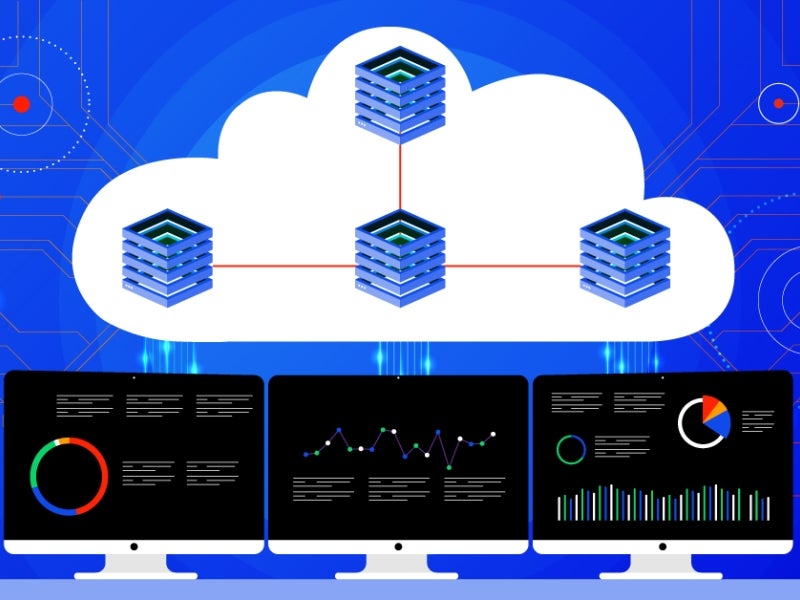What are the 5 myths about a career in business analytics?

Businesses analytics has become a powerful tool in today’s technology-driven landscape. Across all industries, organisations are generating vast amounts of data which has in turn, accelerated the need for professionals who know how to interpret and analyse this information.
Australia has experienced an insatiable demand for analytics professionals in recent years, and with the great global disruption brought about by COVID-19, businesses now require skilled specialists to a greater extent. In fact, half of all companies are now leaning on analytics for business insights and improving efficiencies at a significantly greater rate than before the pandemic.
That’s great news for analytical number crunchers, but where does that leave you? If your skills are in marketing, engineering, or anywhere else in business – you’ll be pleased to know that a career in business analytics isn’t just a numbers game. In fact, your ‘pre-analytics’ experience could make you even more valuable as a business analytics professional.
Dr David Bond, Director of the Master of Business Analytics Online at UTS says that when it comes to business analytics, there is a common misconception that the role predominantly focuses on the technical side of analytics.
“The reality is that it’s more about communicating insights with impact to senior executives, decision makers and stakeholders as it is actually uncovering what those insights are. The technical ability to ‘do’ is important, but so is the ability to communicate insights with a high level of credibility,” he said.
If business analytics was all about numbers and statistics, then robots and machine learning could automate the process and negate the requirement for skilled professionals. However, business analytics is about extracting complex information to create powerful data stories, and harnessing these insights to deliver informed business decisions.
To do so requires a combination of specialist skills including critical thinking, communication and collaboration – skills you’re likely to already be applying in a field in which you have significant experience.
Due to the ambiguous nature of business analytics, there are many common myths and misconceptions that continue to prevail within all areas of the industry. Let’s take a closer look at the top five myths and uncover the true meaning of business analytics.
Myth 1: Business Analytics is all about number crunching and statistics
There is a common misconception that business analytics predominantly relies upon number crunching and statistics. While there are certainly elements of the role that require a technical mindset, business analytics professionals provide greater attention to strategically synthesising information and producing meaningful decisions for business.
To better understand the role of a business analytics professional, it’s useful to consider a number of professions that the role is commonly mistaken with.
Dr Bond asserts that while business analytics professionals often collect information from data analysis, a business analytics professional is not a data analyst.
“The data analyst has more of a focus on the actual data itself, making sure systems are designed and maintained, the data is prepared for analysis and then the actual analysis itself,” he said.
“The business analytics professional needs to understand these tasks but has a better understanding of the needs of the business. So, they would often be taking this information and be making recommendations based on it,” Dr Bond said.
Similarly, business analytics is not the same as business intelligence, although Dr Bond explains that the terms are often used interchangeably.
“They are both concerned with using data to assist an organisation’s decision making. Where they differ slightly is that business intelligence focuses more on what has happened, using descriptive analytics, whereas business analytics focuses more on what could happen – using predictive modelling,” he said.
According to the International Institute of Business Analysis, the role of business analytics is “the practice of enabling change in an organisational context, by defining needs and recommending solutions that deliver value to stakeholders.”
The Institute highlights that the role may be performed by a business analyst, as well as a “business systems analyst, systems analyst, requirements engineer, process analyst, product manager, product owner, enterprise analyst, business architect, management consultant, business intelligence analyst, data scientist, and more.”
From this perspective, we can see how business analytics relies on a variety of skills to bridge the supply side of business and the demand side of consumers in a more efficient way. As such, the business analytics professional draws upon a range of data, experience and human interactions to make decisions that improve the overall business performance – with only a portion of the role focusing on number crunching and data science.

Myth 2: A Business Analytics professionals must have an IT background with strong technical skills
Another common myth centers around business analytics professionals requiring a strong IT background, fluent in areas such as coding and SQL.
Working as a geologist for an oil company is probably about as far from business analytics as you can get. But for Alan Thomson, geology was just one of many stepping stones on his career path to business analytics. Since his days in the oil field, he’s also worked on mobile phone billing systems and local government systems for the distribution of social benefits.
Today, Alan’s broad expertise gives him many advantages when applying business acumen to analysis. And he made that jump from geology with a course in computing.
If you don’t have a strong background in IT or computer science, fear not. The UTS Master of Business Analytics (online) has been designed with the assumption that you may not have any experience in coding. The course includes three data processing classes that make an excellent foundation for your coding journey.
So, rather than holding you back, developing current IT and technical skills on top of your existing experience, can give you an advantage. A report on The Future of Work by Deloitte highlights,
“Businesses are increasingly demanding technical specialists who are also skilled in the art of ‘business translation’.”
It is this ability to be able to translate complex information from technical specialists to stakeholders, and vice versa, that prevails as the business analytics professional superpower.
Consider an example from the Australian company, Business Analysts.
Working with a large hospital network, their primary goal was to improve the management of patient referrals from GPs. In order to achieve this, a computer system needed to be designed and implemented, which would require a significant amount of IT and technical skills. They began their process by speaking with GPs.
Business Analysts understood that data was a crucial element to highlight challenges and quantify the delays. However, to gain a comprehensive understanding of the referrals process, the team was able to gather all the necessary information by speaking with clinical staff and administrators.
The outcome of the project produced reduced waiting times and increased patient satisfaction, achieving a greater level of administrative efficiency overall.
With this approach to driving innovative business solutions, it’s clear that having an advanced technical background is not always the key driver for success.
Myth 3: Business Analytics professionals require a business background
In roles that combine business and analytics, it’s no surprise that misconceptions also swing to the opposite side of the spectrum. With the inclusion of the term ‘business’ in the title of the role, many often presume that a career in business analytics requires a strong business background.
However, you will be surprised to know that professionals with a non-technical or non-business background often prove to be more beneficial in some areas of business. The additional skill sets, and knowledge brought from previous experience, generally inspires greater critical thinking, that can lead to asking more accurate lines of questioning - and often leads to better answers.
Jeremy Schell is a business analyst who works for a company that builds software for the United States Department of Defense. He describes his previous jobs as working in the food services industry – his employer calls it waiting on tables or customer service. However, rather than being a shortcoming, Jeremy’s prior work experience appears to have sharpened his curiosity and communication skills. As a result, his outstanding achievements as a business analyst have recently been acknowledged at the annual company awards.
To contextualise the importance of business experience, it is helpful to narrow down the scope of the word ‘business', as it turns out that many business analytics roles focus on a specialisation. Rather than taking on a whole of business approach, business analytics roles are often dedicated to one function – such as marketing, logistics, human resources or finance. If you’re already working within one of these areas, you can enhance your specialisation and your career with a postgraduate qualification in business analytics.
Specialisations in Business analytics can also span across business functions. The family tree of analytics reaches out with branches that include Data Analyst, User Experience Analyst and Systems Analyst - and those branches have smaller branches like Business Systems Analyst, IT Business Analyst and Business Requirements Analyst. The focus gets even tighter when you consider that many of these roles work on short term projects.
While a broad business background can be helpful in business analytics, it can be more effective to develop the specific business knowledge required for your role. The Master of Business Analytics (online) at UTS includes foundational business courses to build your business acumen.
To assist in understanding the broad range of skills and industries in which business analytics professional can work, we’ve developed a helpful infographic of the current demand in Australia.

(Source: Job Outlook, Burning Glass Technologies 2020)
Myth 4: Business Analytics professionals are only required after a project commences
One of the key roles in a business analytics career is to identify opportunities for change that will deliver an advantage to their organisation. This is something that is very difficult to do after a project commences – as discovered in the United State’s Iowa Caucus of 2020.
Whenever they are not already in the White House, the Democratic Party chooses and announces their presidential candidate at the Iowa Caucus. Unlike regular elections, Iowans gather in hundreds of small meetings to discuss and vote on candidates. Once the decisions are made, the delegates of those meetings phone in the results and an outcome is known within an hour. That was, until this year.
In 2020, the Democrats developed a phone app to improve the gathering of those final results. Unfortunately, the app failed. Some delegates weren’t able to install the app onto their phone. Of those that could, there were many that couldn’t get the system to work. In the end, what normally took an hour, dragged into the night, with live TV presenters scrambling to fill the void. A result was not announced until the next day.
We don’t know if a business analyst was involved in this project before it commenced. If they were, they may have identified that there was no real problem here to solve. With the traditional technique delivering confident results within an hour, the app would actually have to do something special to add value. In addition, with a deep understanding of the many stakeholders relying on the results, a business analyst may have insisted on more thorough testing before the big night.
However, the role of the business analytics professional is unfortunately not always considered one of the essential positions of the project management team. In fact, quite often the role of the business analytics professional is often performed by the project manager, who has a similar but very different skill set.
Dr Bond points out that there are some significant advantages in having an independent business analytics professional on the project from the outset.
“The role of a project manager is to meet the project objectives, whereas the role of an analytics professional is to help organisations reach their goals – these may not be one and the same thing,” he said.
“The analytics professional may provide recommendations on what should have been done to help the organisation get where it wants to go. This recommendation may then lead to a project which would be enacted by the project manager,” Dr Bond said.
Essentially, the business analytics professional has two key tasks to perform on a project. The first is problem identification, whether that’s confirming the existence of a problem that needs fixing (as suggested by Dr Bond), or identifying problems that may arise in the project (as in Iowa). The second key task is problem-solving, to iron out wrinkles before they increase costs or bring a project to a standstill.
Meanwhile, the project manager is responsible for effective project planning, control and delivery. So, when there is a business analytics professional on the project management team, these two roles work very closely together – right from the beginning.
The Project Business Case is the ‘kick-off’ document for most projects, and it outlines the justification for the endeavour. It’s built on the input of stakeholders – information that can be expertly elicited with business analytics skills – such as customer analytics and delivering customer value. As the project progresses, the business analyst identifies solutions to problems while the project manager ensures that those solutions are delivered.

Myth 5: Becoming a Business Analytics Professional takes years of additional study
By now, you’ve probably worked out that you already have many of the skills required for a career in business analytics. With three quarters of companies missing the required skills and technology to make the best use of the data they collect, and 54% of all employees requiring significant re- and upskilling in analytics; there has never been a more opportune time to get ahead and make your mark in the world of business analytics.
However, rather than undertaking years of additional study to become a business analytics professional, you simply need to focus on the right areas. That’s the strategy behind UTS's Master of Business Analytics (online) – giving you the choice between a concentration on IT or business.
Whichever path you take, all students undertake three data processing subjects that will provide a solid base for the technical side of analytics. The course includes subjects such as Data Processing using R, Data Processing using Python and Data Processing using SAS. R and Python are both programming languages, while SAS is a statistical software suite used in business intelligence, data management, and predictive analytics.
The Master of Business Analytics (online) is a two-year course that is delivered 100 per cent online. So, you can apply your business analytics skills immediately as you continue your career throughout your studies. Coupled with agile content, this course will ensure you learn the skills that are currently emerging and most in demand.
Dr Bond highlights that there’s a growing awareness of the value of data, even in businesses that don’t yet have the capabilities to make the best use of it.
“This means that for an individual who is able to invest in developing their analytics skills they will not only be of greater value to their own organisation, they’ll also make themselves more marketable generally as there is a major shortfall in analytics professionals both in Australia and globally,” he said.
As a pure business analyst, graduates can expect to earn average salaries of $110-120,000 in an industry that is expected to grow over 20 per cent in the next five years.
This demand is creating hybrid business analytics roles, such as the business analyst/program manager. We’ve already looked at how closely these two roles work together, but it’s not uncommon for people to move between the two roles, depending on the project. Other roles that rely heavily on business analytics include user experience design, data analyst, programmer and product owner.
A business analytics qualification also arms you with many skills that are prerequisites for senior management and leadership roles. These skills include fact-based decision making, quantitative analysis and predictive analysis.
With demand for business analytics skills growing at a steady rate before COVID-19 was even a consideration, we’ve seen the value of data analysis in responding quickly to the rapidly evolving situation. With this in mind, there’s no doubt that the demand for business analytics abilities will continue to surge well into the future, as the generation of data continues to proliferate across all industries.
Learn how you can meet with demand with a Master of Business Analytics at UTS Online.




